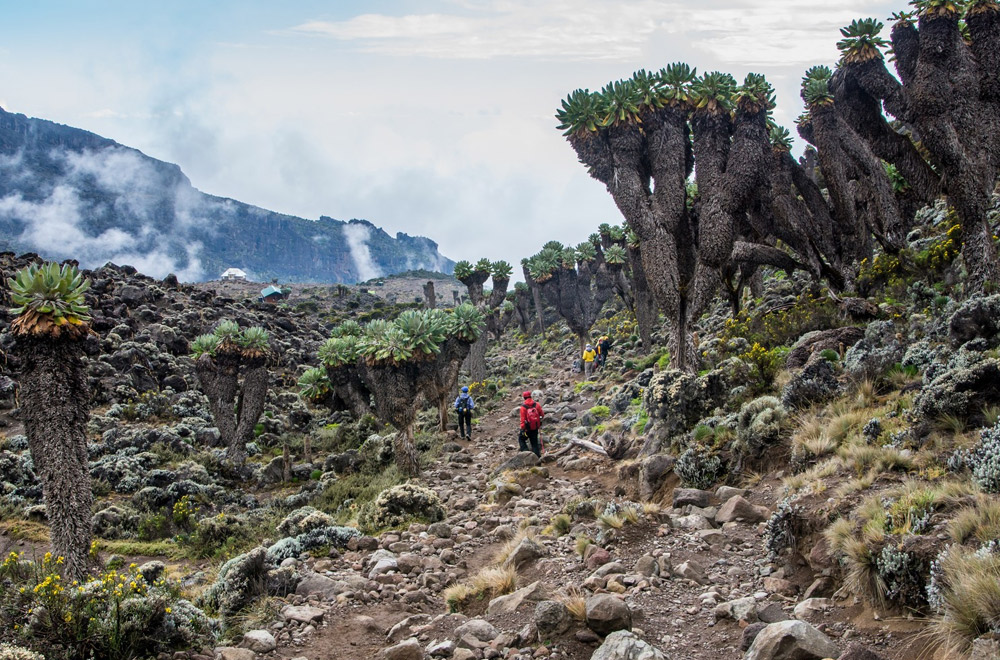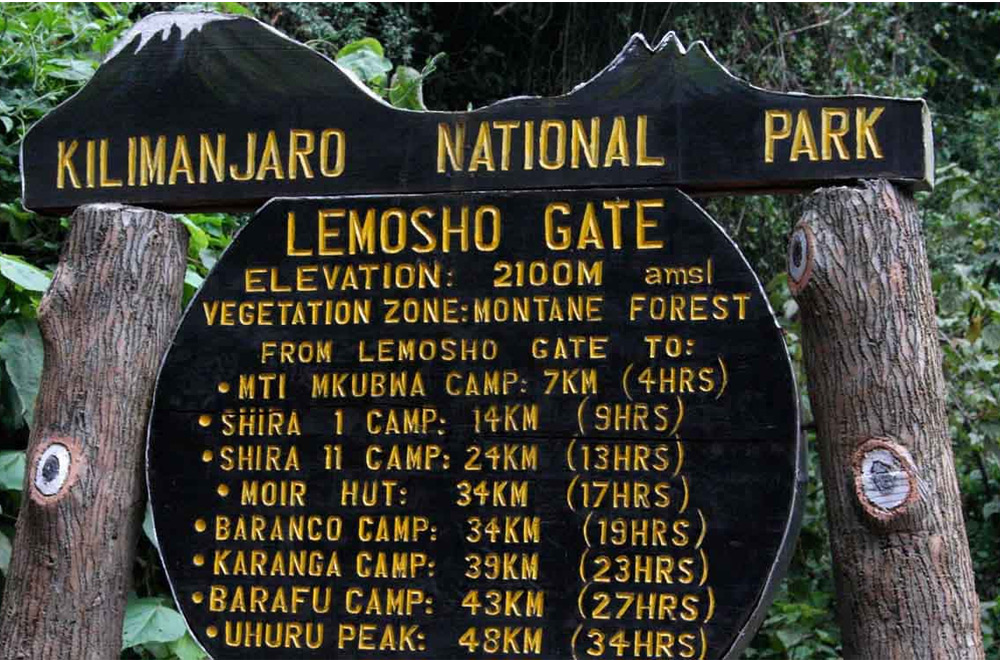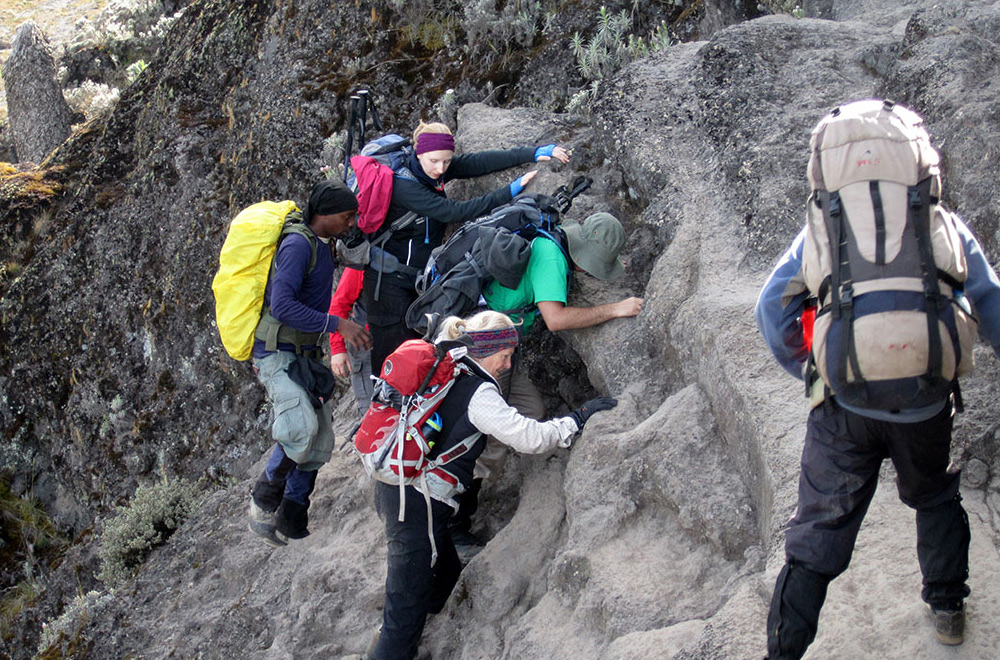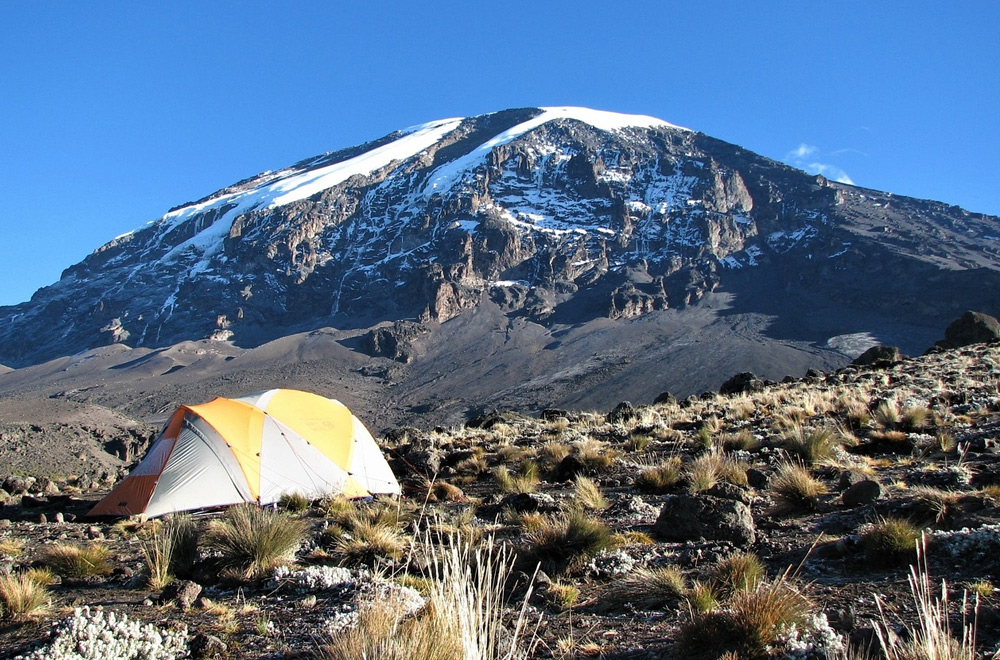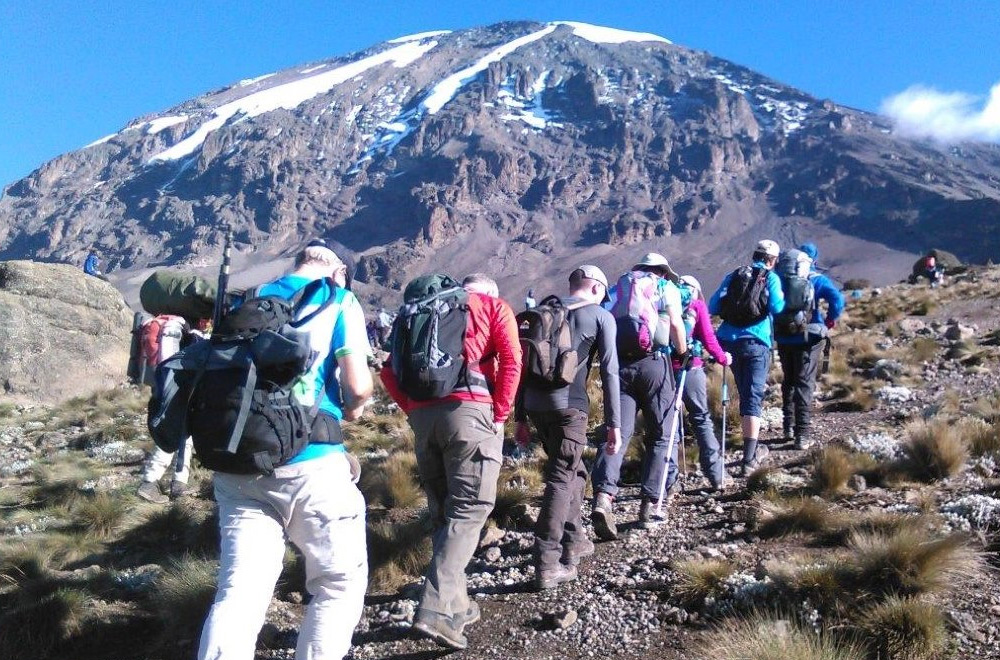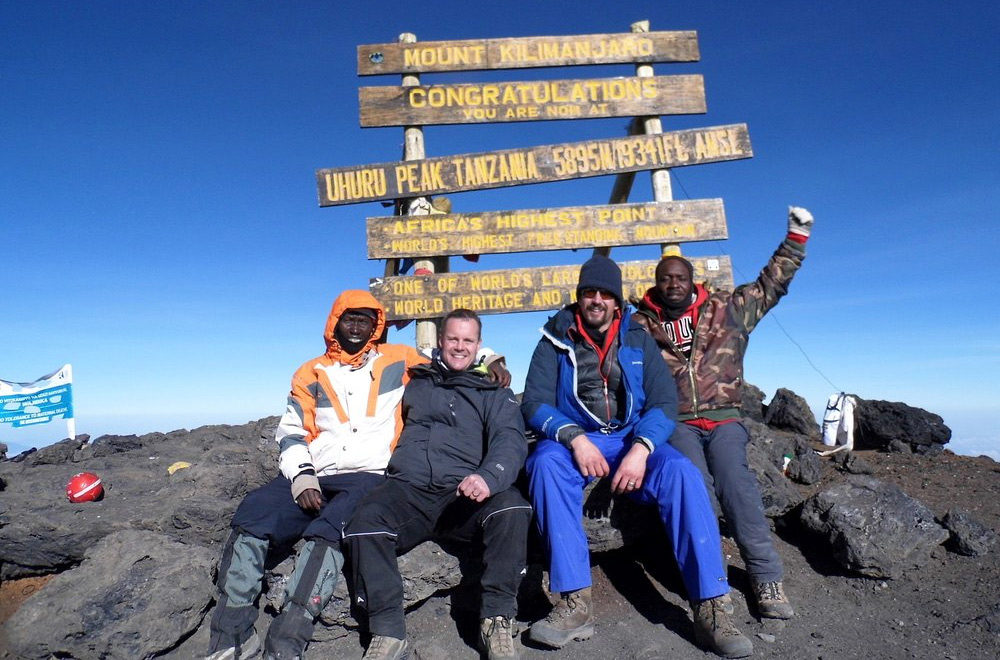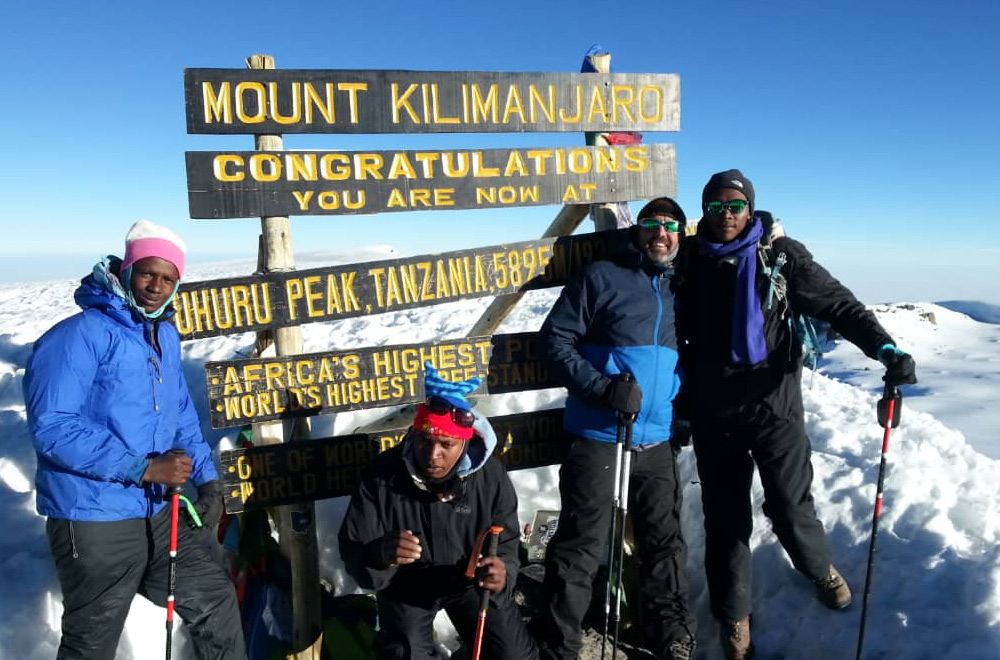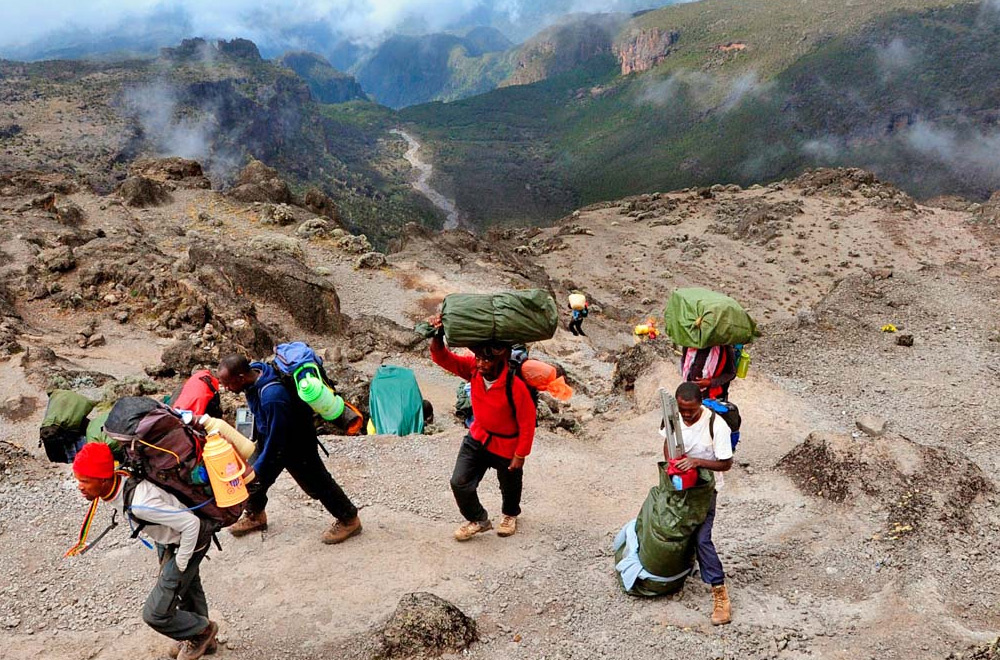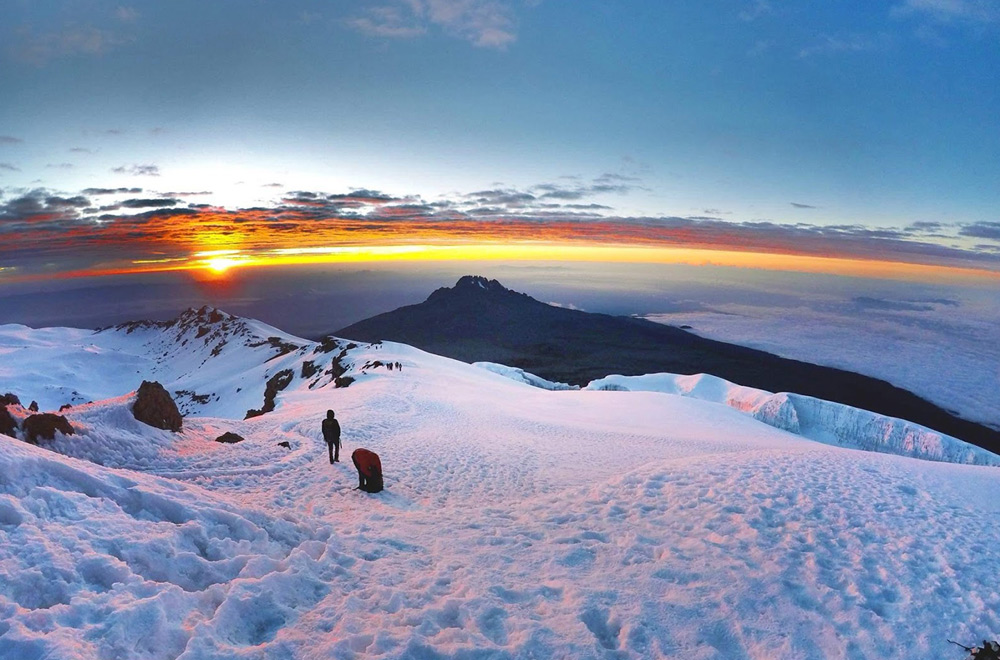Starting Point
Kilimanjaro Airport
Trip Days
7 Days
Hotel
5 Star
Transportation
Safari Vehicle
7 Days Lemosho Route
Lemosho route starts on the western side of Mount Kilimanjaro and is one of the lesser-used routes. The route is more demanding than Rongai and Marangu, but it’s also one of the most picturesque and varied options.. It has some steep areas and passes through a larger variety of vegetation types and landscapes than other routes. You will traverse the lush green rainforest during the first two days after which the vegetation changes to moorland characterized by heather, ericas, ferns and large lichen-covered rocks. From the third day the route joins up with the Machame route and enters the alpine desert sections of the route, which rise and fall en route to the arctic summit. The Lemosho scheduled climb departs fortnightly on Thursday while a private climb can start any day.
Kilimanjaro Airport – Moshi
After arriving in Tanzania – at the Kilimanjaro Airport – our transfer driver will meet you and bring you to Moshi. Your accommodation and supper at your hotel is included in the tour price. Relax at the pool or have a look around the town. Tonight you and your group will meet our operations team for a talk about the adventure that lies ahead. Get a good night’s rest at your hotel.
Dinner
Price
Starting from $ 3255Location
TanzaniaDurations
7 Days - 6 Nights
Type
Kilimanjaro TrekkingDeparture City
MoshiEnd City
Moshi
After breakfast at the hotel you will be taken to the Londorossi gate at 2 250m. The drive should be two to three hours and on the way you will pass many traditional villages and farmland. After registration at the gate, it is another 15 minutes’ drive to the actual start of the Lemosho route – deep in the lush, green rainforest. From here you will set off on foot, gradually going uphill through the forest to Big Tree Camp at 2 800 m. On arrival at this shaded forest camp, your porters will have set up camp already and will greet you, introduce themselves, then encourage you to join them in singing the Kilimanjaro song. You will overnight here and enjoy a nutritious cooked supper before going to bed
Start: Lemosho Starting Point (2385m)
Finish: Big Tree Camp (2780m)
Altitude: ↑ 400m
Walking Time: 2-3h
Breakfast, Lunch, Dinner
A longer day awaits. Starting off through the forest, you will notice how the vegetation gradually changes; the trees are thinning out and more shrubs appear as you ascend. You will see lobelias and Erica’s and cross Shira Ridge. After about five hours of hiking, you will stop for a hot lunch at Shira Camp 1. This spot has great views of the sister mountain Mt Meru and the Rift Valley below.
The afternoon stretch will take about three hours and you will gain 250m in altitude. Still the landscape changes as you cross an area that was molten lava many years ago. Strange plants dot the landscape – giant senecios – you should be close to Shira Camp 2. This is your camping spot for the night. If the weather is good, you should see the summit – an awesome view at sunset.
Start: Big Tree Camp (2780m)
Finish: Shira Camp 2 (3900m)
Altitude: ↑ 1120
Walking Time: 7-8h
Breakfast, Lunch, Dinner
Lots of ups and downs today. You will gain about 700m in height and will certainly feel the difference, only to descend again for tonight’s camp at Barranco. The up and down will help your body acclimatize. During the day you will reach an altitude of over 4500m above sea level. The day starts with an uphill above Shira Plateau towards the Lava Tower at 4 600m. The landscape is now almost bare alpine desert and resembles an entirely different world. Descending again, you will start seeing more vegetation – lobelias and the surreal senecios in the sweeping Barranco Valley. After about seven hours (from when you started) you should reach Barranco Camp, by many considered the best camp on Kilimanjaro. Snacks and hot drinks are waiting as usual.<
Start: Shira Camp 2 (3850m)<
Finish: Barranco Camp (3950m)<
Altitude: ↑740m ↓ 680m<
Walking Time: 6-7h<
Breakfast, Lunch, Dinner
Don’t be discouraged by what you see in front of you today; the Barranco Wall, known to the guides and porters as the “Breakfast Wall”. It is not as intimidating or frightening as it seems, though it is one of the steepest sections of the route. “Pole pole”, slowly slowly, as they say on the mountain, and you will reach the top. Use your hands if you need to, listen to the encouragement of the guides and soon you will admire the spectacular views from the top. You will continue along the undulating ridge. Focus on Kibo peak and the southern glacier and before you know it, you will be at Karanga Camp in time for lunch. The rest of the afternoon can be spent relaxing and or enjoying the scenes around the camp.
Start: Barranco Camp (3950m)
Finish: Karanga Camp (4250m)
Altitude: ↑ 100m ↓ 60m
Walking Time: 3-4h
Breakfast, Lunch, Dinner
After the usual breakfast of hot porridge, eggs and fruit you will set off to Barafu Camp. You should reach the overnight camp (at 4 600m) after about four hours of increeasingly sparse littered with volcanic rocks. The afternoon is at your leisure; relax or read and prepare mentally for the summit attempt that will start in the early morning hours. Or you can ask your guide to take you on a short round trip to the top of a ridge a couple of hundred metres higher (close to 4900m) to get a head start on the acclimatization process for the impending summit climb. Try to eat well and drink lots of water before going to bed, even if it’s a struggle. You have a few hours to sleep before the wake-up call at around 00:00.
Start: Karanga Camp (4035m)
Finish: Barafu Camp (4640m)
Altitude: ↑ 600m
Walking Time: 3-4h
Summit day starts off in the dark. You will first go to Stella Point on the crater’s rim. Another few hours to reach Uhuru peak in the early sunrise. You will ‘feel’ the altitude. After a few minutes at the summit, the descent is steep and long.
Breakfast, Lunch, Dinner
After waking up and having some tea and biscuits, you will set off, following a string of headlamps as they move slowly upwards… It will be cold and dark. Keep going slowly and steadily, focus carefully on your breathing, eat and drink when possible but without taking any long breaks (it’s too cold to halt for long), then you will reach Stella point on the crater’s edge between five and seven hours later. Keep going for an hour or two and you will finally be on the roof of Africa – Uhuru Peak. You will probably spend between ten and twenty minutes in the cold and thin air at 5 895m – take in this memorable achievement, admire the view and the early morning sun over the landscape below. A fast and gravelly descent follows. At around noon you should reach Barafu camp again where the crew is waiting. You will have a warm lunch and rest for an hour or so before setting off down again. After about three hours, you should reach Mweka Camp (3 000m) where you will sleep deep and soundly tonight.
Start: Mweka Camp (3080m)
Finish: Mweka Gate (1630m)
Altitude: ↓ 1450m
Walking Time: 2-3h
Congratulations from the crew as they sing a traditional song and dance after breakfast. A relative short and easy descent through the green forest.
Breakfast, Lunch, Dinner
The last day on the mountain starts with breakfast. Then your crew will congratulate you on your achievment; there will be more singing, team photos and hugs, then the tips will be distributed to the crew. Now, the last stretch of about three hours to Mweka Gate lies ahead. It should be an easy descent through the rainforest. At the gate our driver will be waiting to return you to the hot showers and cold drinks of your hotel. Later meet at the bar for a celebratory drink and a debriefing, during which your certificate of achievement will be handed over. Well done! Tonight you will enjoy supper at the hotel and then perhaps head out for some more celebratory drinks, if the fatigue hasn’t taken over yet.
Congratulations from the crew as they sing a traditional song and dance after breakfast. A relative short and easy descent through the green forest.
Breakfast, Dinner
Included
Trekking tour according to the itinerary
Accommodation in tents and hotels as indicated in the itinerary
Professional English-speaking guide
Portable toilet and toilet tent
Personal porter
Meals as indicated in the itinerary
Drinking water
Transfers as indicated in the itinerary
National park fees
Rescue fees
Camping equipment – tents, sleeping mattress and camping furniture
Excluded
Flights (international and domestic)
Meals not indicated in the itinerary
Beverages other than water (alcohol and soft drinks)
Visa, tips, personal expenses, travel insurance
Sleeping bag (can be rented, please ask us at the time of the booking
View Map
Mount Kilimanjaro Preparation List
Talk to someone who has been there
Tell us what you are looking for in a travel experience and let us do the hard work for you. The best travel experiences are ones that are tailored to you.







